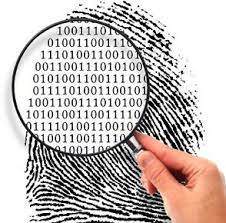 Former students of a culinary school allege they were defrauded into enrolling by means of misrepresentations about graduation rates, employment prospects and anticipated income levels. Plaintiffs’ first attempt at obtaining information about school documents for 800 plaintiffs was pursuant to a business records subpoena. Under Evidence Code section 1563, defendants offered to comply if plaintiffs paid the processing fee of approximately $60,000. Finding that amount prohibitive, plaintiffs’ second attempt was for the same information, but in electronic form, and a cost estimate was requested. Defendants refused to supply a cost estimate, and instead filed a motion to quash. The trial court denied defendants’ motion to quash, finding the information sought by plaintiffs was relevant and not already in plaintiffs’ possession. The trial court ordered the parties to meet and confer, and the report back to the court was that defendants could comply with the electronic request at a cost of $18,848. Plaintiffs said they were willing to pay that cost, but subject to a credit of $11,487 for the cost of opposing and appearing for the motion to quash. After a lengthy hearing, the trial court awarded plaintiffs their $11,487 for attorney fees, and defendants appealed that order. In affirming the trial court’s award of attorney fees, the appellate court noted that under Code of Civil Procedure section 1985.8, even if the subpoenaed person establishes that the electronically stored information is not reasonably accessible because of undue burden or expense, the court may order its production if the court finds good cause for doing so. The appellate court also noted defendants refused to even provide a cost estimate for the electronically stored information until after the motion to quash was denied. (Vasquez v. California School of Culinary Arts, Inc. (Sallie Mae, Inc.) (Cal. App. 2d Dist., Div. 2; September 26, 2014) 230 Cal.App.4th 35, [178 Cal.Rptr.3d 10].)
Former students of a culinary school allege they were defrauded into enrolling by means of misrepresentations about graduation rates, employment prospects and anticipated income levels. Plaintiffs’ first attempt at obtaining information about school documents for 800 plaintiffs was pursuant to a business records subpoena. Under Evidence Code section 1563, defendants offered to comply if plaintiffs paid the processing fee of approximately $60,000. Finding that amount prohibitive, plaintiffs’ second attempt was for the same information, but in electronic form, and a cost estimate was requested. Defendants refused to supply a cost estimate, and instead filed a motion to quash. The trial court denied defendants’ motion to quash, finding the information sought by plaintiffs was relevant and not already in plaintiffs’ possession. The trial court ordered the parties to meet and confer, and the report back to the court was that defendants could comply with the electronic request at a cost of $18,848. Plaintiffs said they were willing to pay that cost, but subject to a credit of $11,487 for the cost of opposing and appearing for the motion to quash. After a lengthy hearing, the trial court awarded plaintiffs their $11,487 for attorney fees, and defendants appealed that order. In affirming the trial court’s award of attorney fees, the appellate court noted that under Code of Civil Procedure section 1985.8, even if the subpoenaed person establishes that the electronically stored information is not reasonably accessible because of undue burden or expense, the court may order its production if the court finds good cause for doing so. The appellate court also noted defendants refused to even provide a cost estimate for the electronically stored information until after the motion to quash was denied. (Vasquez v. California School of Culinary Arts, Inc. (Sallie Mae, Inc.) (Cal. App. 2d Dist., Div. 2; September 26, 2014) 230 Cal.App.4th 35, [178 Cal.Rptr.3d 10].)
Leave a Reply
You must be logged in to post a comment.